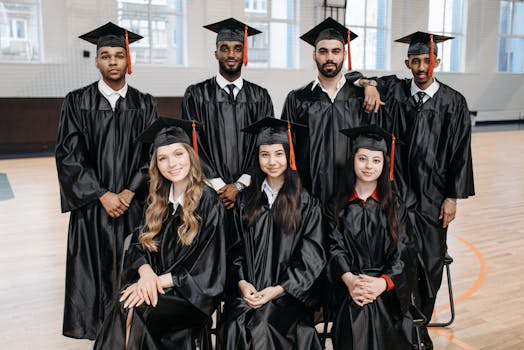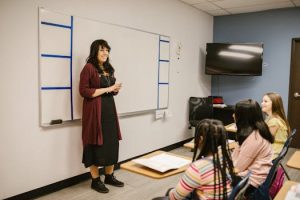Post-Traditional Education Models: Speculative Futures
The landscape of education is constantly evolving, with new technologies and societal shifts shaping the way we learn and teach. Traditional models of education, such as attending a physical school or university, are no longer the only options available to students. The rise of online learning and alternative educational approaches have opened up a new world of possibilities for those seeking to further their education. In this article, we will explore the concept of post-traditional education models and take a speculative look at the potential future of learning.
What are Post-Traditional Education Models?
Post-traditional education models refer to non-traditional methods of learning that exist outside of the traditional institutional framework. This could include online courses, self-directed learning, and alternative schooling options. These models have gained popularity in recent years due to the flexibility and accessibility they offer to learners, allowing them to study at their own pace and choose from a wide range of subjects.
The Rise of Online Learning
One of the most significant developments in post-traditional education is the rise of online learning. With advancements in technology, students are now able to access courses and materials from the comfort of their own home. This has not only made education more convenient but has also opened up opportunities for those who may not have had access to traditional forms of education.
Online learning has also democratised education, allowing individuals from different socio-economic backgrounds and geographic locations to access high-quality education. In addition, online learning has also spawned new forms of learning, such as Massive Open Online Courses (MOOCs), which provide free, open access to courses from some of the world’s top universities.
Alternative Education Approaches
In addition to online learning, there has been a rise in alternative education approaches that cater to specific interests or learning styles. This includes homeschooling, unschooling, and project-based learning. These models allow students to explore their passions and interests in a more personalised and self-directed manner, which can lead to a deeper understanding and love for learning.
Alternative education approaches also encourage critical thinking, creativity, and independence, which are valuable skills in today’s rapidly changing job market. They also allow students to learn outside of the traditional classroom setting, providing a more diverse and well-rounded education.
Speculative Futures of Post-Traditional Education
As technology continues to advance and society shifts towards a more digital landscape, it is likely that we will see further growth and evolution in post-traditional education models. Here are some possible future scenarios:
Virtual Reality Learning
Virtual reality (VR) technology has the potential to revolutionise the way we learn. With VR, students can immerse themselves in a fully interactive and realistic learning environment, allowing for a more engaging and hands-on learning experience. This technology could be particularly useful for subjects that are difficult to learn solely through textbooks, such as science and engineering.
Personalised Learning
With the use of artificial intelligence (AI), it may be possible for educational programs to be tailored to the individual needs and learning styles of students. AI could assess a student’s strengths and weaknesses and provide personalised content and resources to help them learn more effectively. This could lead to more efficient and personalised education, catering to the unique needs of each student.
Global Collaboration
The rise of online learning and virtual classrooms also opens up the potential for global collaboration between students and educators from all around the world. This could lead to a more diverse and expansive learning experience, as students gain perspectives and insights from different cultures and backgrounds.
In Conclusion
Post-traditional education models are offering exciting new opportunities for learners of all ages. They are breaking down barriers to education and opening up a world of new possibilities. As we continue to embrace technology and alternative approaches to learning, it will be fascinating to see what the future holds for post-traditional education.











